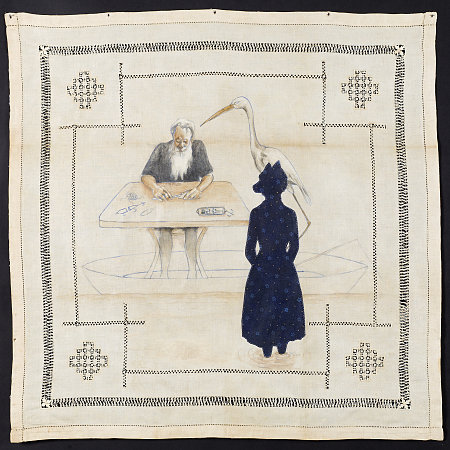
A Collaboration
So does Goombeldt.
There’s no point.
He can no longer help. The little girl must already be dead. He should have helped her earlier. He missed that opportunity. Was it a test? Or foul play? Perhaps the scream was fake, a last attempt to get him back and trapped and maybe killed.
You take a cigarette break. Goombeldt and I wait for you. When you return from the balcony, I gesture toward the keyboard, indicating that you should have the rest of it. You accept.
A few minutes go by. Goombeldt slows down. The whole thing must have been a hoax. The little girl looked, sounded, too bizarre for any of this to be real. But what if she looked that way, sounded that way, because she was scared? How does one look when frightened, in the last few minutes of one’s life? He imagines her small, angular body bleeding, stabbed to death. Is this how it happened?
One longs for a resolution to the dramas of one’s life. Usually, a resolution is provided. But not this time. He will never know what of this has been real.
This crime, the crime that may have been committed, has had two victims. One of them may be dead, no longer concerned about any of it. But Goombeldt will be concerned for the rest of his life. Which is rather odd for a complete accident, a momentary choice, one of the millions of good and bad choices one makes without enough time to consider them, based on intuition and instinct alone, stripped of one’s Homo sapiens shell. This night will become a thin yet unbreakable thread between his current self and the end of his life.
Goombeldt’s thoughts return to Zungvilda. He longs for her attentive, listening face, her advice, her touch. Her mere presence. And then he realizes: Zungvilda is a different person, distinct from him, painfully and irreversibly separate. Whatever she has to say has absolutely no relevance. None whatsoever. Especially now. He knows she will have a reason for not being there—a perfectly good reason, as usual; a perfectly irrelevant reason neither of them needs.
